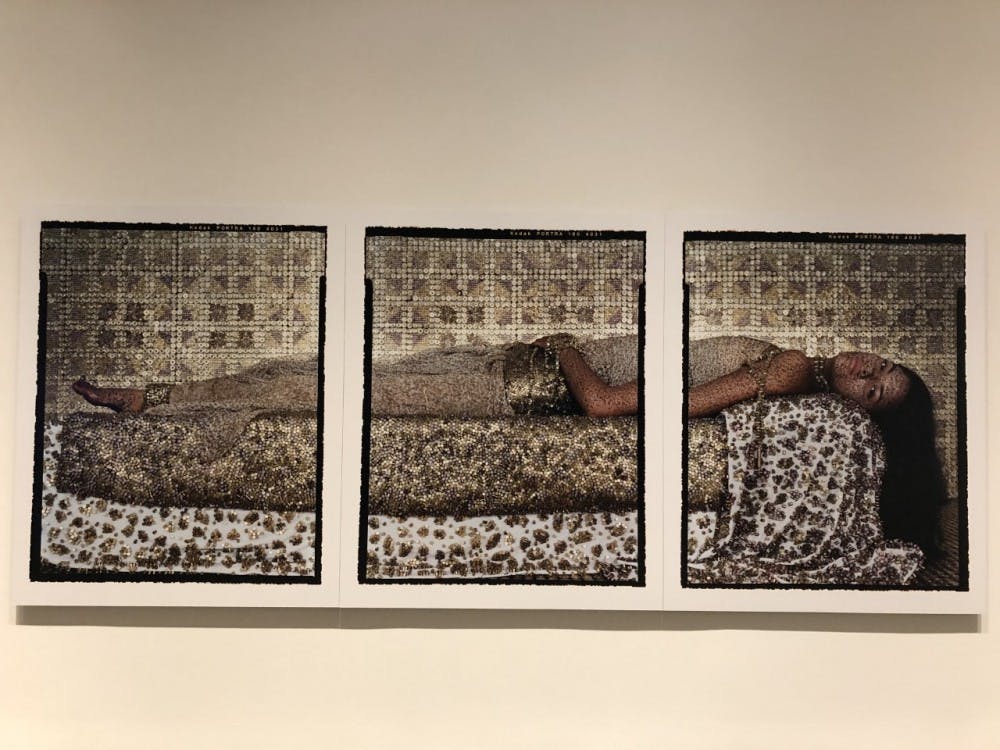The Ackland Art Museum’s newest exhibition showcases powerful works of photography by 12 female photographers from the Arab world who use the medium to capture the complexities of identity and challenge perceptions of it.
The exhibition is called "She Who Tells a Story: Women Photographers from Iran and the Arab World." It has over 80 photographs that showcase a variety of styles and points of view. When visitors walk into the exhibit, the first thing they see is a message from Kristen Gresh of the Museum of Fine Arts, Boston, who first curated the show in 2013.
“Their images are about the people, landscapes and cultures of a region in flux — one that cannot be defined in a singular territorial, religious or ethnic way,” the message reads.
Some photographs address the theme of war, like the still life series “Nil, Nil” by Shadi Ghadirian. Her photographs juxtapose everyday objects with objects of war. One shows a bowl of fruit with a grenade nestled between the apples and oranges. Another shows a brightly colored head scarf hanging next to a military helmet.
Katie Ziglar, director of the Ackland, said one of the pieces she finds the most beautiful is a photo by Lalla Essaydi. The photo is split into three panels, and shows a woman reclining on a couch that seems to be made of gold. However, a closer look reveals it is made of bullets, as is the woman’s belt and the decorations on the wall behind her.
“It looks quite lovely when you first cast your eye on it, but closer examination reveals that it’s very fraught,” Ziglar said.
Other topics addressed in the exhibition include personal identity, deconstructing “Orientalism,” the Arab Spring and the lives of women in the Gaza Strip.
Peter Nisbet, deputy director for curatorial affairs, said that, while many of the works address political topics, the show does not have a particular narrative or argument.
“I think anybody who comes to the exhibition expecting something narrow or something predictable will be surprised,” Nisbet said.



